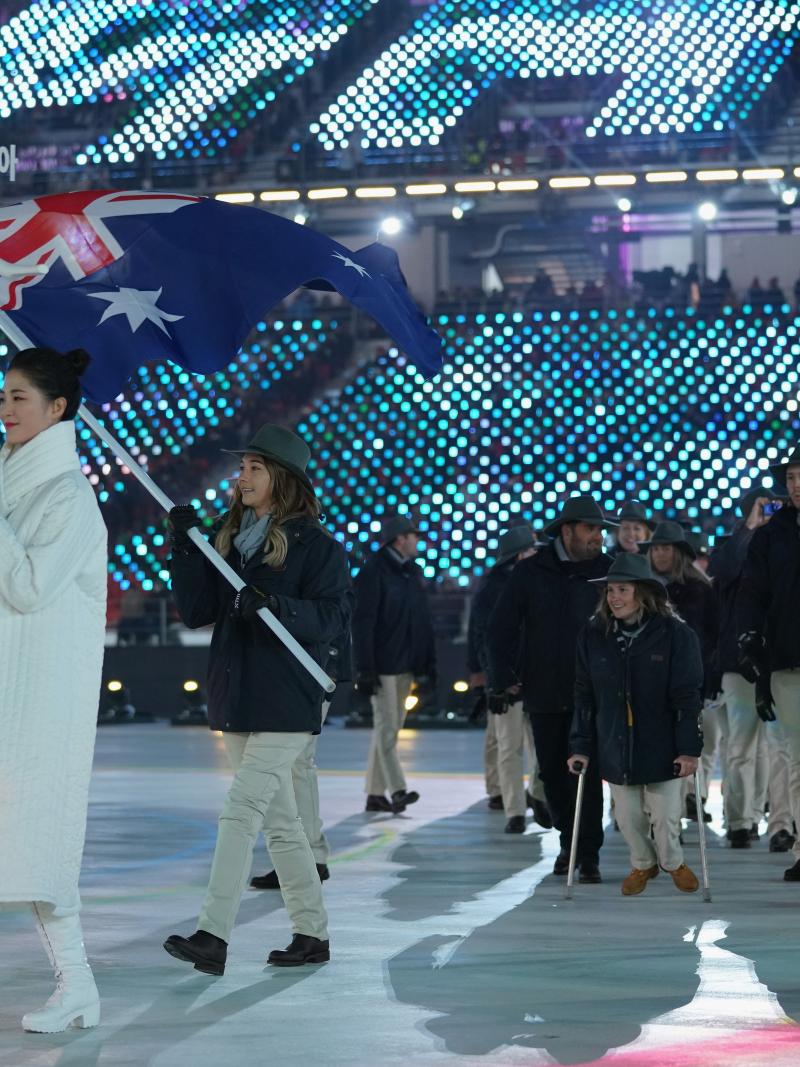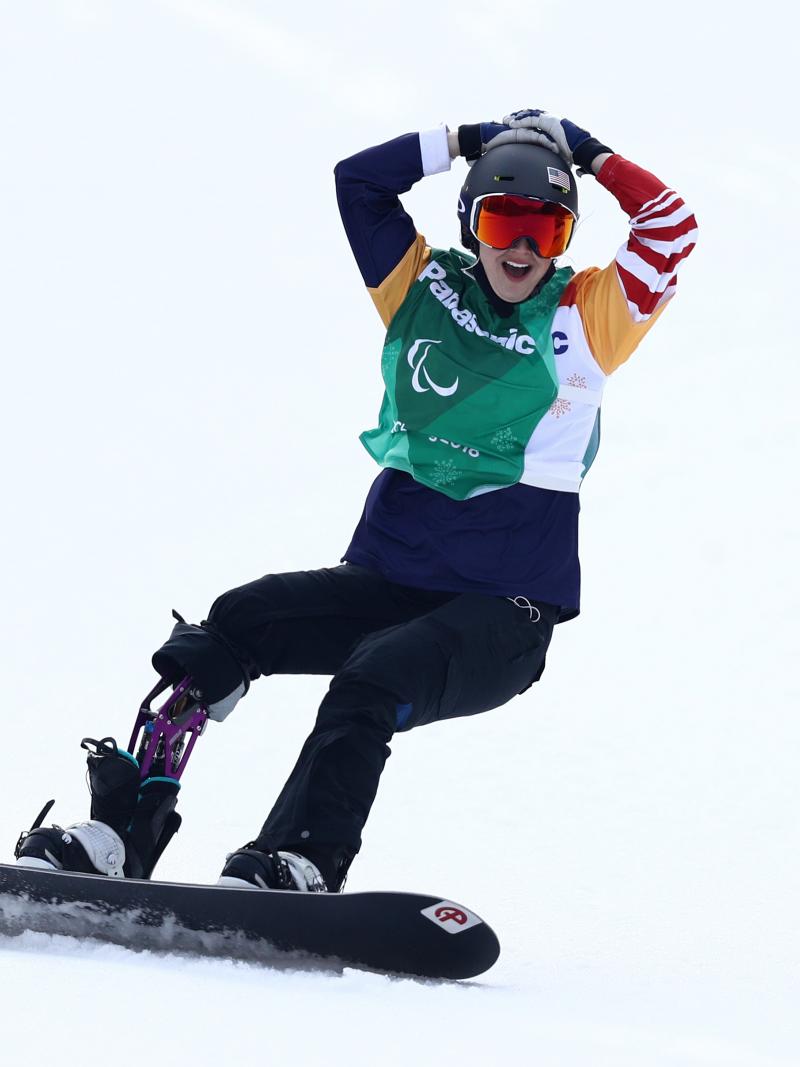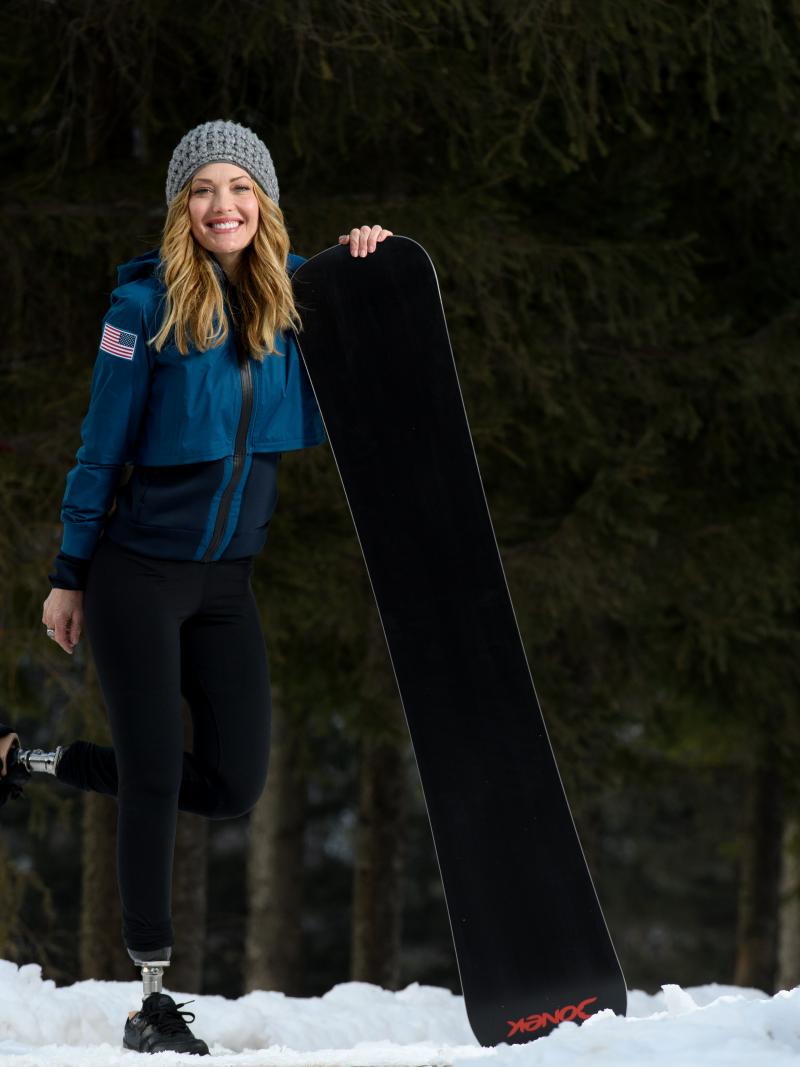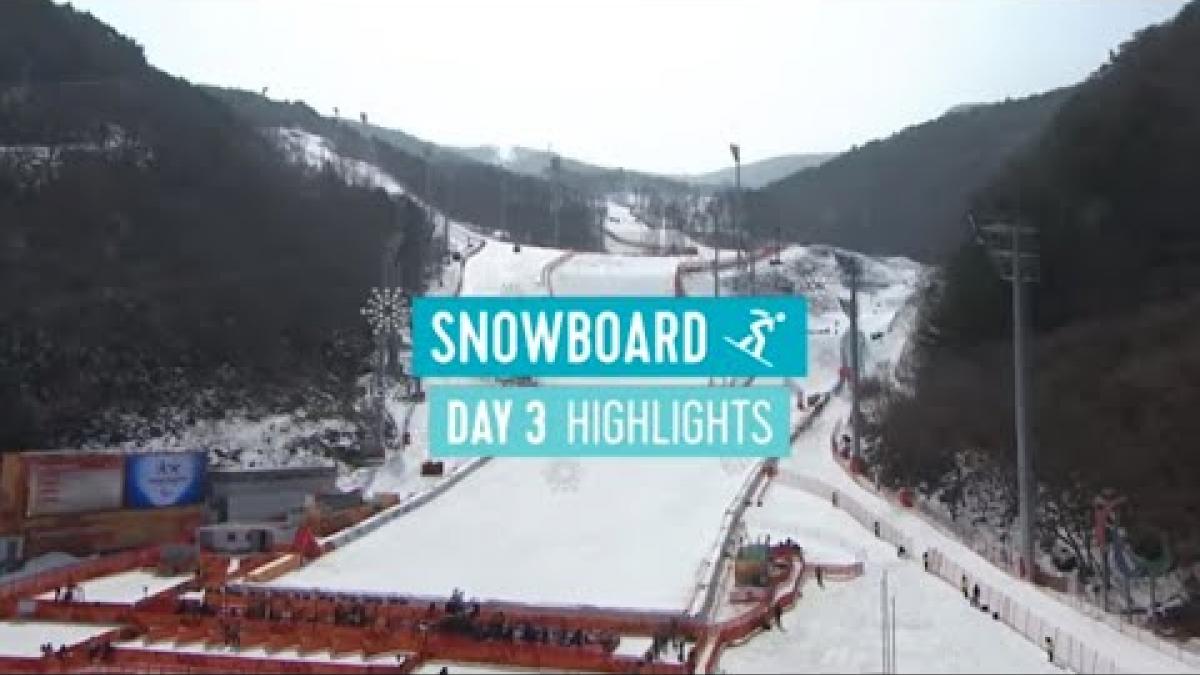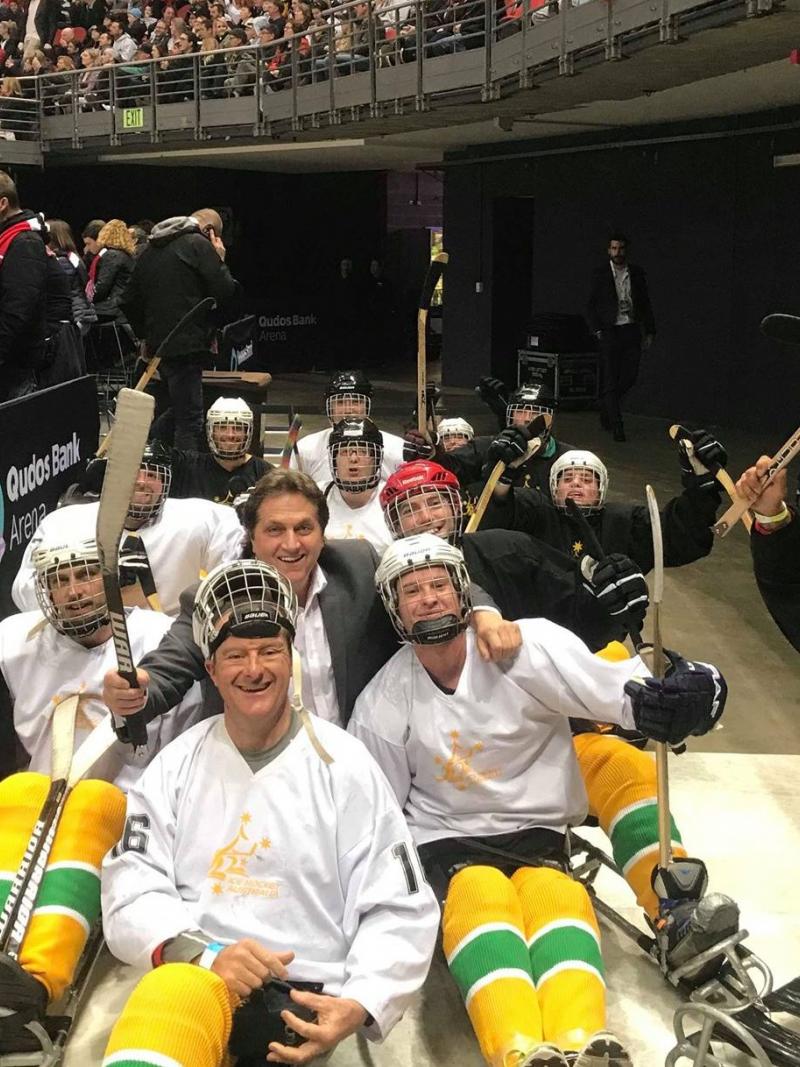Joany Badenhorst: Positive vibes only!
Snowboarder ready to bounce back from PyeongChang 2018 heartbreak 11 Dec 2018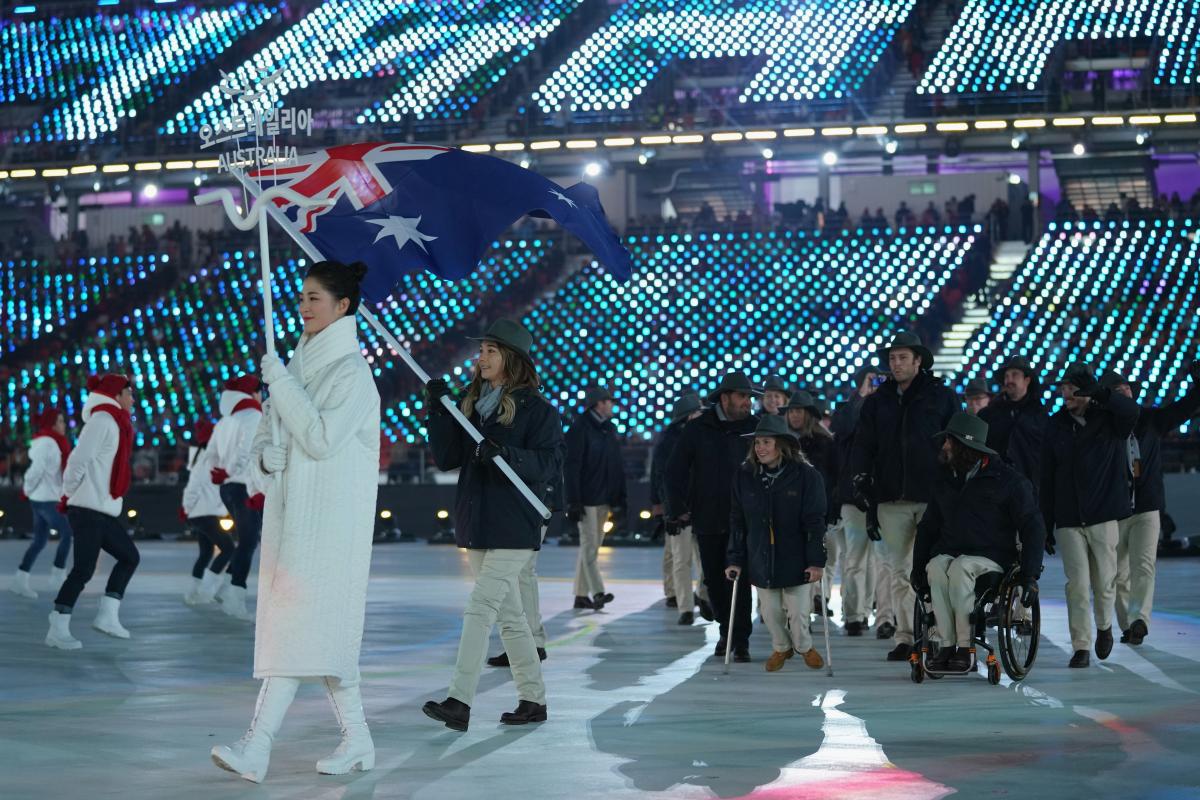
Joany Badenhorst was the flag bearer for Australia at the PyeongChang 2018 Opening Ceremony
“I stay optimistic. How can’t I? I live an incredible life, I get to wake up and go to the beach. I’m happy and healthy, I’ve got an incredible family. And Australia gives me opportunity to compete in a sport I love, so I recognise I’m privileged. I don’t want to waste it on feeling sorry for myself.”
She might just be the unluckiest Paralympian around but Joany Badenhorst is staying upbeat – and planning to return to the very top of snowboard cross. Six years ago, the Australian was close to making the London 2012 Paralympic Games as a runner, but her chances were dashed by injury.
She switched to winter sports and worked her way up to become one of the world’s best snowboarders, but injury forced her withdrawal from Sochi 2014.
And after travelling to PyeongChang 2018 as one of Australia’s top medal hopes, it was third time unlucky: a training accident two days before she was due to compete in the snowboard cross – as hot favourite – once again scuppered her chances of glory.
Valuable lessons
If all this was meant to make you miserable, nobody has told Joany. The relentlessly energetic 24-year old (she’s been up since 4.30am on the day of the interview for a photo shoot on the beach – “it was beautiful, the sunrise was amazing”) sees the positives in everything.
“I wouldn’t want anyone to get injured as much as I have but every time has taught me a valuable lesson,” she says. “I wouldn’t take it back. Maybe I deserve a break but if you look at the likes of (Vancouver 2010 women’s downhill champion) Lindsey Vonn, she’s had more injuries than anyone but still comes out on top. Maybe it’s a symptom of someone who pushes things a little too hard but also really wants something.
“I stay optimistic. How can’t I? I live an incredible life, I get to wake up and go to the beach. I’m happy and healthy, I’ve got an incredible family. And Australia gives me opportunity to compete in a sport I love, so I recognise I’m privileged. I don’t want to waste it on feeling sorry for myself.”
She even managed to enjoy the Korean experience. “It wasn’t what I envisioned for myself in PyeongChang but I still had an amazing time out there,” she says.
“I got to spend time with my teammates and I saw them at their best. I wanted to be on the snow, but second-best was being in the stands supporting them. And being the flagbearer at the Opening Ceremony was amazing.”
Taking a break
Recuperating gradually from her injury, both physically and mentally, Joany will miss this season but aims to be back on the slopes by June 2019.
“It’s for the best that I take a break,” she says. “Leading up to the Paralympics I was ranked No.1 and I was physically and mentally in the best state possible to take that gold. The crash took its toll on my body and mental health but I’ve had knee reconstruction and am now back in the gym working hard.
“I’m focusing on getting happy and healthy in all aspects of my life, before I commit again to snowboarding. I’m a competitive athlete and I see myself at Beijing 2022, hungry to win again. So I’ve got a long way to go to get back to where I was, and then get even better and stronger than that.”
Not that she’s disappeared from the scene: “I’m still obsessed with snowboarding and I’ve been on the snow helping Disabled Wintersport Australia recently. It’s great helping other people.”
Role model
South Africa-born, Joany moved to Australia four years after she was injured in a farming accident at the age of 11. Now a role model, she takes her position seriously – especially considering the lack of people she could look up to as a youngster.
“When I lost my leg, I came back home to a community that had never seen an amputee, let alone an amputee child,” she says. “When I went back into school it was difficult, lots of people didn’t want me to participate because they didn’t realise what I was capable of, or thought I might injure other kids. I needed to create a space where I felt safe.
“It wasn’t until I saw the Paralympics on TV, and the South African team blazing a trail, that I thought about doing sport properly.”





